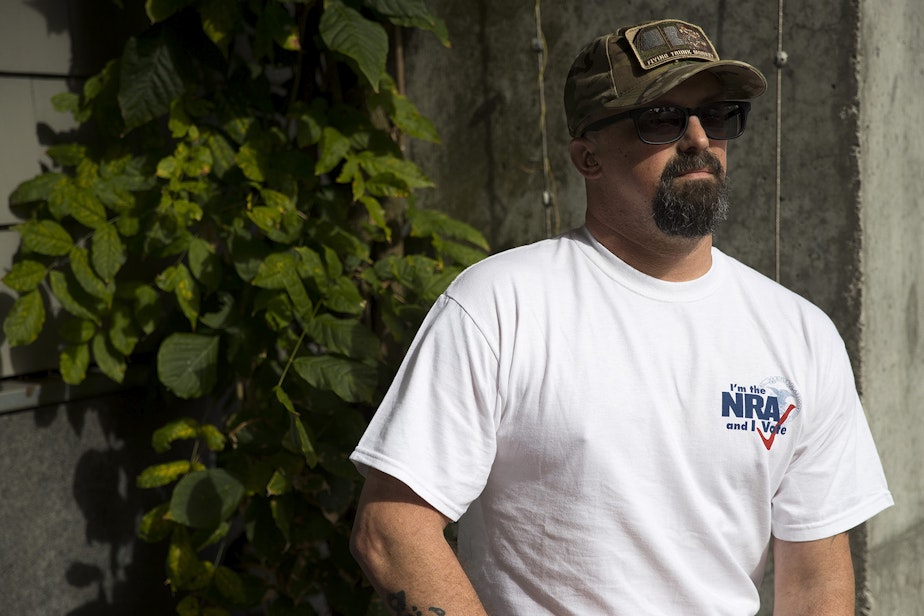Money floods into Rossi-Schrier race: Can anyone stop it?
KUOW listener Robin Macnofsky does not like all the money pouring into the region for political ads this year. She lives in the 8th Congressional District east of Seattle, which is on track to be the most expensive U.S. House race in state history.
"How do we put an end to this and get the money back out of politics?" she said. "I think that's the root of all evil at this point."
In this race, Dr. Kim Schrier, a Democrat, is running against Republican Dino Rossi to replace retiring GOP Congressman Dave Reichert.
Millions of dollars are flooding in from all over the country, mostly for political ads to support — or attack — the candidates.
One ad aims to raise doubts about what Schrier sees as her biggest strength: health care. It claims Schrier turned away people on Medicaid.
In fact, Schrier worked at the Virginia Mason clinic out in Issaquah, which doesn't accept all Medicaid plans.
Outside a coffee shop in Issaquah, Alexandra Toepke called the ad misleading and said she plans to vote for Schrier in the fall.
“I really resent that fact that there's so much outside money … pouring in, and we don't know who the money is coming from," Toepke said.
In this instance, the Congressional Leadership Fund, a super PAC associated with Republican House speaker Paul Ryan, paid for the attack ad.
Super PACs can raise unlimited amounts for federal elections. U.S. Supreme Court has ruled that sort of political spending is protected speech under the First Amendment.
Schrier said voters should ask themselves who is paying for such attack ads against her, which she says include, “big pharma, and big oil and the insurance industry.”
Those scary political ads
Reporter David Hyde talks to KUOW's Kim Malcolm about all the money flowing into the 8th Congressional District race.
But it's not clear exactly who pays for these ads.
Super PACs must reveal their donors to the Federal Election Commission. But donors to super PACs often don't have to say who funded them.
A conservative group called the American Action Network is the biggest donor this year to the Congressional Leadership Fund, and as a nonprofit doesn't have to reveal its financial backers.
Schrier said if she is elected, she will support bills that would require more transparency for these "dark money" groups.
"The more light that we can shed on who is really giving so much money to these super PACs, the more informed we'll be as citizens on how seriously to take those ads," Schrier said.
Outside the Issaquah library, Matthew Brzozowski said he worries about the money going to pay for these political ads.
"There's other ways that that money can be spent,” Brzozowski said.
But Brzozowski had a very different reaction to this anti-Schrier ad.
"I kind of look at ads almost as memes, I just laugh … there's memes on both sides," he said.
Brzozowski supports NPR (National Public Radio) and also the NRA (National Rifle Association). He said he plans to vote for Rossi this fall.

Rossi's also been the target of misleading negative ads paid for by outside groups like the House Majority Pac, which is a super Pac that tries to get Democrats elected to the house.
Rossi did not agree to speak to KUOW for this story.
But the campaign did send a statement saying it's "open to reforms of the system to ensure that outside and unaccountable groups don't have an outsized influence on the process."
But don't expect to see less money anytime soon.
Even though it's not clear that political ads really work, the campaigns clearly think they do, and biggest spenders in U.S. house races usually win.
According to the Wesleyan Media Project, political ads by outside groups are up 85 percent over the last mid-term elections.
More money is being spent on TV ads in the 8th Congressional District this year than any other house race in the country, except one, according to a CNN report.




